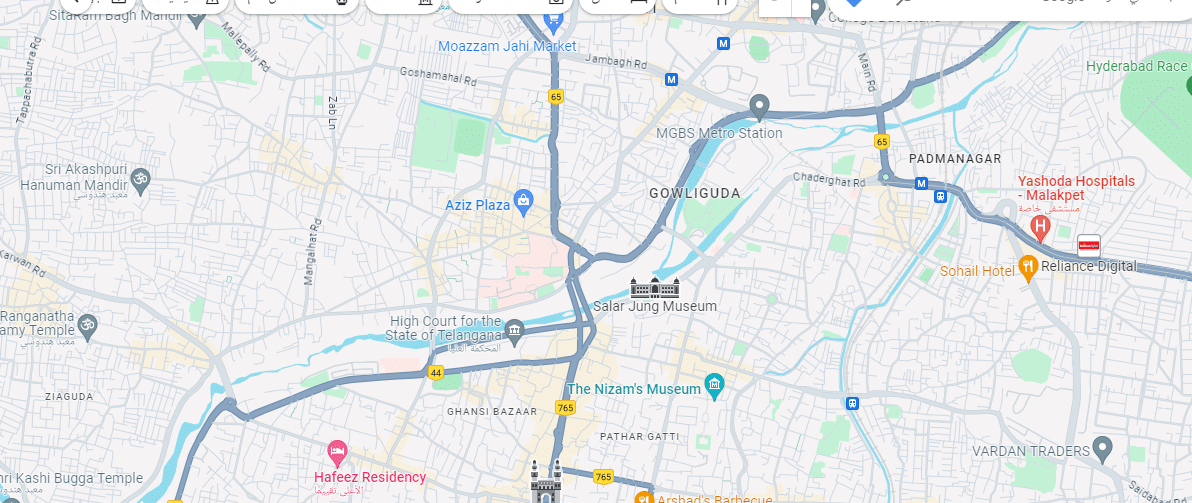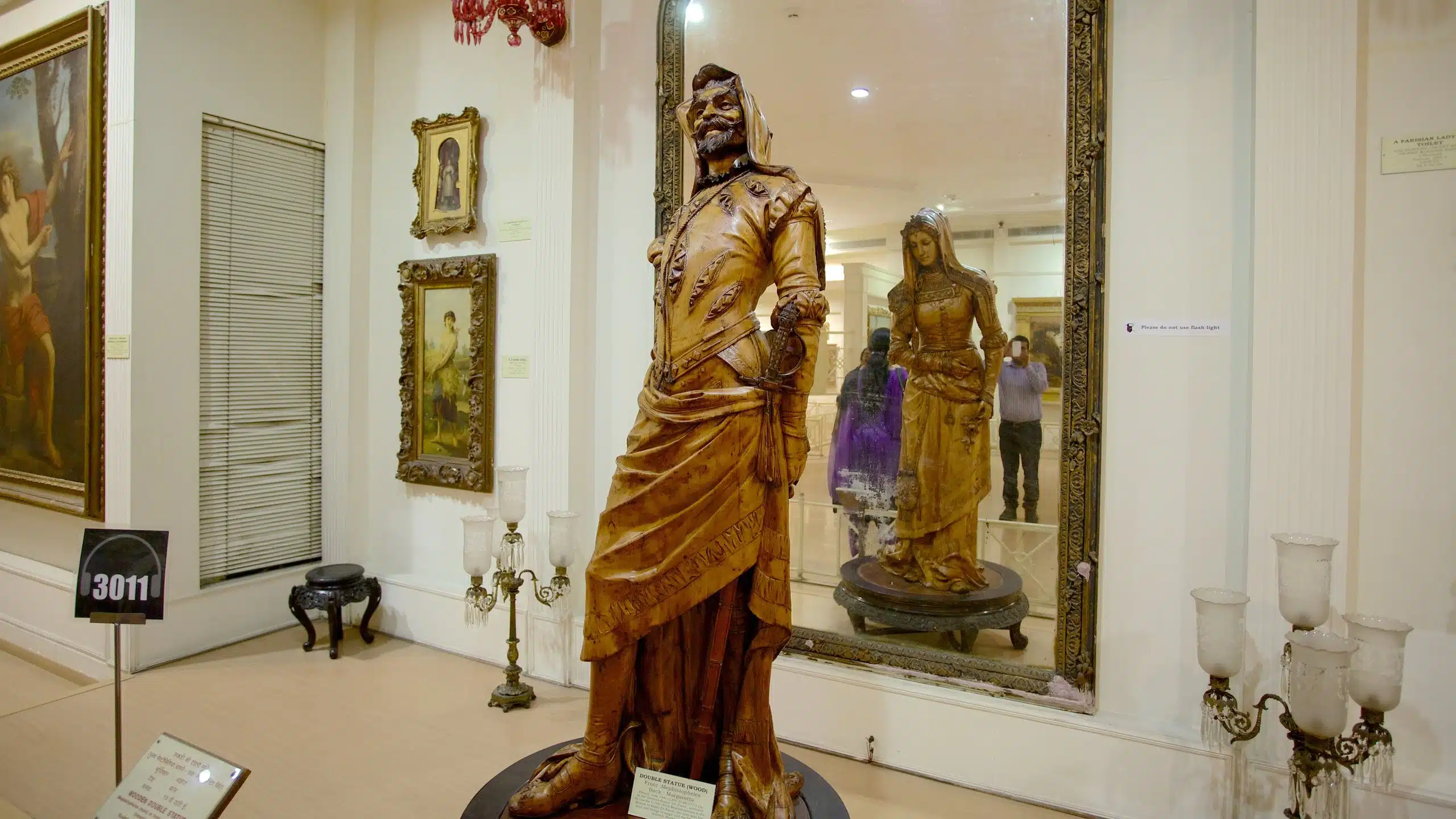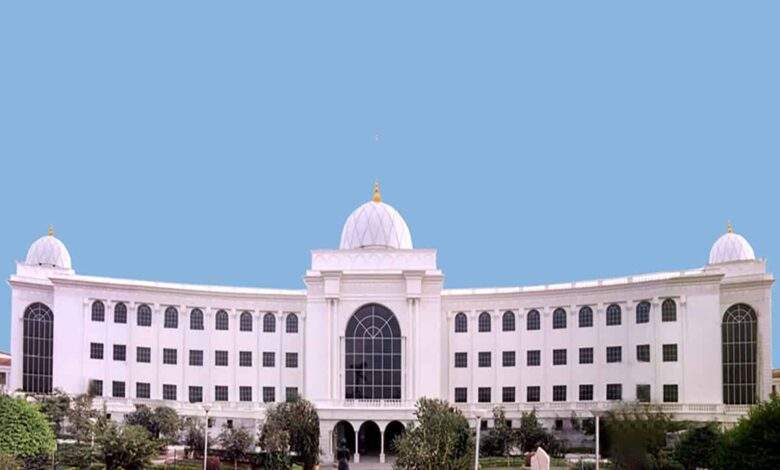Salar Jung Museum Hyderabad,
Salar Jung Museum is one of the three national museums of India.
This museum is also the third largest museum in India.
It includes a collection of ancient manuscripts, ceramics, metalwork, carpets, sculptures, textiles, paintings and clocks.
Most of the collectibles in this museum belong to different civilizations.
The daggers belonging to Empress Noor Jahan, Emperor Jahangir, and Emperor Shah Jahan are among the important historical artifacts in the museum.
The ancient artifacts in the museum also belong to the Salar Jung family and these collections date back to the first century.
Under the Salar Jung Museum Act, 1961, the museum is maintained by a Board of Trustees with the Governor of Andhra Pradesh as the ex-officio Chairman.
Apart from the thirty-eight showrooms containing precious antiquities,
The museum also includes a library, cafeteria, sales counter, and reading room.
The Salar Jung Museum is one of the top tourist attractions in Hyderabad and attracts about ten thousand visitors every year.

Collections of Salar Jung Museum
The Salar Jung Museum houses artifacts collected by Nawab Mir Yusuf Ali Khan Salar Jung III,
Who was the former Prime Minister of the Seventh Nizam of Hyderabad.
He spent a significant amount of money over approximately thirty-five years to acquire his collections.
People believe that some of the Nawab’s properties were misappropriated while moving the items from Diwan Devdi, the palace of the nobles, to its present location.
About fifty thousand books and forty-three thousand artifacts were collected by Nawab Mir Yusuf Ali Khan Salar Jung III,
But there are now only a few of those artifacts in the museum.

Museum collections
The Salar Jung Museum houses the Nawabs’ precious ancestral collections, which are beautifully displayed in this museum.
Some of the many historical artefacts include the famous paintings of Raja Ravi Varma, Tipu Sultan’s wardrobe,
And daggers made of precious stones that belonged to ancient kings and queens,
Aurangzeb’s sword and jeweled boxes.
The museum also includes an ancient furniture collection dating back to the fourteenth and seventeenth centuries.
Other important historical articles include woodcuts, the statue of Rebecca the Veiled, Mughal miniatures, European sculptures and Chinese porcelain.
And embroidery works, metal wares, jade carvings, Japanese silk paintings and elegant ivory work as well.
One can also admire the “Mestopiles” and “Lady with the Lamp”, which are highlights of the museum.
The “British Musical Clock of the Nineteenth Century” is the most valuable artifact among the other 300 clocks in the museum.
infrastructure
The Salar Jung Museum contains thirty-eight galleries spread over two floors.
There are twenty galleries on the ground floor and eighteen galleries on the first floor.
Each exhibition in the museum displays artifacts that fall under separate themes.
The museum also contains an educational section, a chemical preservation laboratory, a reading room, a library, a cafeteria, and a sales counter.
Salar Jung Museum is one of the most visited places in Hyderabad.
This museum houses many historical articles collected by Nawab Mir Yusuf Ali Khan Salar Jung III during his lifetime.
Some of the oldest artifacts in the museum date back to the first century.
One can find many antiques that belong to the Middle East, Europe and Asia as well.
See More: Parametric architecture software materials and examples



